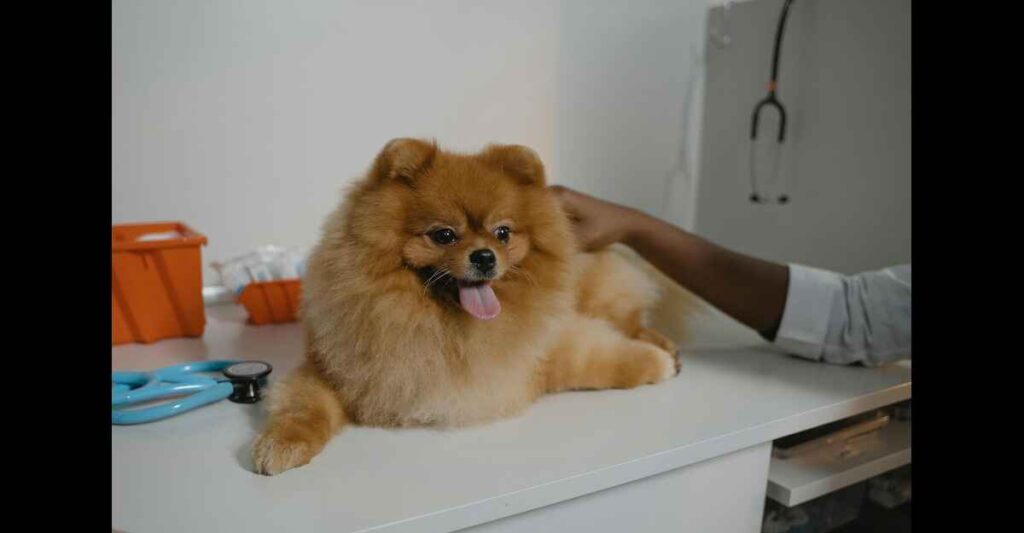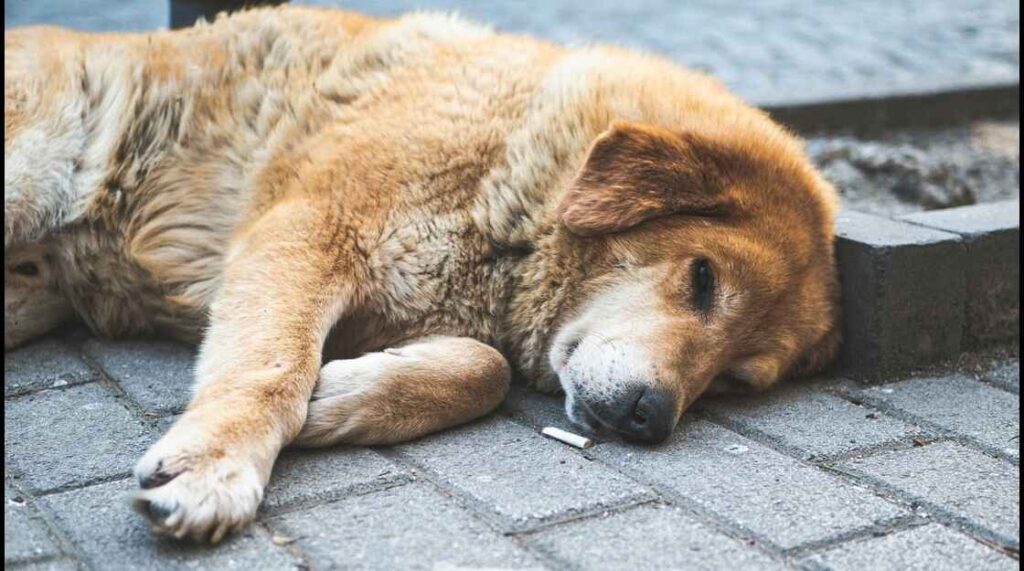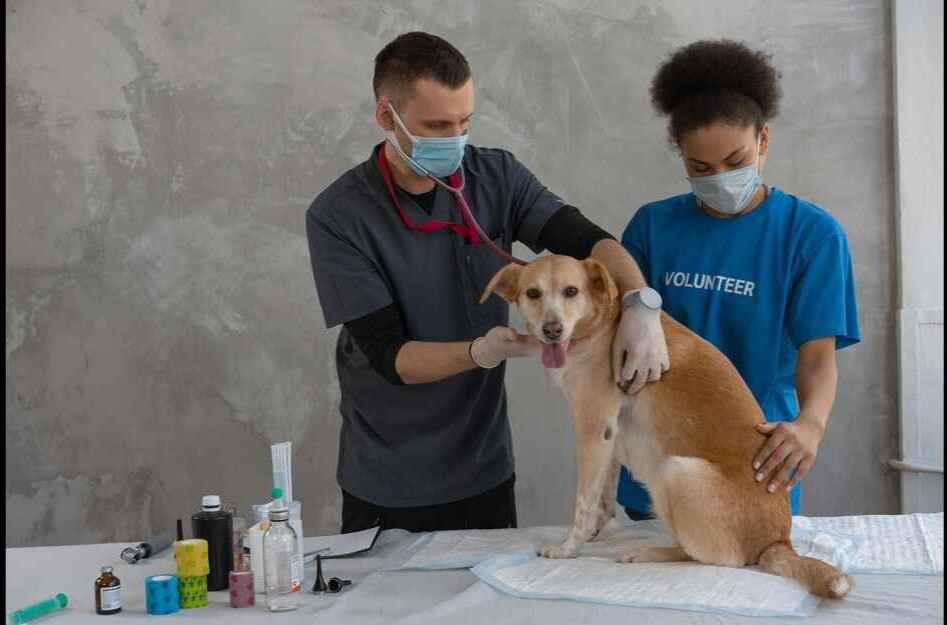Recognizing Digestive Problems
Common health problems in dogs often begin in the gut.You might brush off vomiting, diarrhea,or a dog skipping meals as“something they ate” but these could point to bigger problems.
The most visible sign is repeated vomiting.If your dog throws up more than once in a day or continues for a few days,that’s a red flag.Loose stools or diarrhea lasting more than 48 hours isn’t normal either.Another silent signal?Your dog’s loss of appetite.If they avoid food or treats they usually love,that’s not just picky behavior.
Last year,I noticed my Labrador eating grass and throwing up.At first,I thought it was just one of his weird habits.But by day three,he refused food.The vet said it was early pancreatitis. We caught it in time only because I acted quickly.
Early signs to spot:
- Increased drooling
- Sudden weight loss
- Lethargy after meals
- Excessive gas
Use feeding times as a check-in.If your dog looks uncomfortable,eats slowly or doesn’t finish their bowl,start asking questions.Digestive troubles are one of the common health problem in dogs,but they’re easy to ignore until it’s too late.
Dogs with Down syndrome-like symptoms are especially prone to digestion issues.These common health problems in dogs with down syndrome can make regular meals challenging.So pay even closer attention if your dog has any genetic abnormalities.
Identifying Skin Conditions
Skin issues aren’t just about itching.They can reflect deeper common health issues in dogs that affect their immune system or allergies.
If your dog scratches constantly,especially at night or after walks,don’t ignore it.Look for redness,scabs,bald spots or even greasy fur.These signs are often dismissed as fleas or dryness,but they could signal skin infections,mange or even hormonal imbalance.
During a grooming session,I noticed my terrier had a patch behind his ear with no fur.A quick trip to the vet revealed a fungal infection.It looked harmless at first—just a small dry area.But it spread fast.
What to check during grooming:
- Dandruff or flaky skin
- Foul smell from coat
- Thickened or darkened skin
- Tiny bumps or sores

Even common health problems in small dogs like Shih Tzus and Chihuahuas often start with skin signs.They have more sensitive coats and hidden folds where yeast and bacteria thrive.Don’t wait for the scratching to get worse—spot it early and treat it quickly.
Some breeds like Havanese are especially prone to coat issues.If you own one,you should know that common health problems in havanese dogs often appear as chronic skin irritations.
Spotting Joint and Mobility Issues
One day your dog loves to fetch.The next,he limps back after a short run. Mobility issues sneak in.They’re some of the common health problems in senior dogs,and you need to watch for them early.
Don’t just look for limping.Look for reluctance to climb stairs,difficulty getting up after naps or even a sudden disinterest in walks.Stiffness in the morning that eases as the day goes on is another sign of joint problems.
When my old beagle started dragging his back legs,I thought it was just age.A vet visit confirmed early arthritis.We adjusted his weight,added supplements and shortened his walks.Within a month,he was more active and happier.
Subtle signs include:
- Licking at joints
- Slower movements
- Irritability during handling
- Bunny hopping gait
For larger breeds like Newfoundlands,weight strains the joints faster.Common health problems in newfoundland dogs often include hip dysplasia and elbow issues.Don’t wait until your dog stops walking.Catch it at the first sign of hesitation or discomfort.
Maintaining a healthy weight is key.Heavy dogs age faster.So,even if your pup begs for snacks,remember:fewer pounds mean fewer joint issues.
Monitoring Respiratory Health
Not all coughs are kennel cough.Respiratory distress is one of those common health concerns in dogs that can escalate quickly if you ignore it.
Start by listening.Is there wheezing? Rapid breathing even at rest?Persistent coughing that sounds deep or hacking?These aren’t just allergies or“old dog sounds.”They could be signs of bronchitis,pneumonia or even heart failure.
Once,I noticed my pug making weird throat sounds.I thought it was a reverse sneeze.But it continued for days.The vet diagnosed collapsed trachea—a problem common in smaller breeds.We had to change his collar and adjust his environment.
Check for:
- Open-mouth breathing
- Bluish tongue or gums
- Exercise intolerance
- Sneezing fits without mucus
Common health problems in small dogs,like Yorkies or Pomeranians,often include tracheal collapse.That’s why it’s crucial to observe their breathing after playtime or during sleep.
Basic care routines like grooming and hygiene,as explained in how to keep your dog clean and healthy,can help prevent many health issues.
Senior dogs are also at risk.As they age,common health problems in senior dogs often include chronic bronchitis.Don’t let age fool you into ignoring serious signs.
How to Spot Health Issues Early
Regular Health Check-ups
Think of the vet as your early-warning system.Many common health problems in dogs don’t show outward symptoms right away.A routine blood test or physical exam can catch conditions long before they become serious.
Even if your dog looks fine,regular check-ups can reveal:
- Hidden infections
- Organ dysfunction
- Allergies
- Parasites
Annual visits are minimum.If your dog is older or has existing conditions,go every 6 months. Make sure the vet checks ears,eyes,teeth,joints and runs bloodwork.
This routine becomes even more crucial if you own breeds with known risks.Havanese and Newfoundlands,for example,both have unique needs.Don’t skip appointments—these visits can mean the difference between quick treatment and long-term damage.
Observing Behavioral Changes
Dogs speak through behavior.A sudden change might not be “just a mood.”It’s often a warning sign of common health issues in dogs.
Has your friendly dog become withdrawn?Is your energetic pup suddenly sleeping all day?These aren’t personality quirks—they could be early indicators of discomfort, pain or illness.
I remember my usually hyper Border Collie suddenly stopped greeting me at the door.He wouldn’t chase his favorite ball.Turned out,he had a urinary tract infection.There were no other signs.Just subtle behavior changes.
Watch for:
- Hiding or avoidance
- Growling or snapping
- Increased sleep or agitation
- Pacing or restlessness
These behaviors often come before visible symptoms.Especially in dogs with common health problems in dogs with down syndrome,changes in routine or temperament might be your only clue.
Dogs don’t fake it.If something feels off,it probably is.Trust your instincts and act fast. Behavior is your dog’s language—listen closely.

Maintaining a Healthy Lifestyle
Prevention is stronger than treatment.A healthy lifestyle helps prevent most common health problems in dogs.What you feed,how often you walk and how you groom all play a role in long-term health.
Start with food.Quality nutrition supports the immune system and keeps digestion running smoothly.Avoid filler packed kibble.Look for real meat,vegetables and supplements tailored to your dog’s breed and age.
Exercise matters too.Too much or too little can lead to weight gain,joint issues or stress. Tailor your walks,playtime,and rest periods based on age and breed.
Grooming isn’t just about looks.It helps you spot skin conditions,lumps or parasites early.Plus,it keeps your bond strong.
Here’s what a weekly routine might look like:
- Daily: Walk,hydration check,basic coat brushing
- Weekly: Ear cleaning,paw inspection,longer walks
- Monthly:Full grooming,weight check,review diet
- Bi-annually:Vet check-up
Dogs like Havanese and small breeds require consistent grooming.That’s where many common health problems in havanese dogs and common health problems in small dogs show up—skin folds,ear infections and matting.
For aging dogs lifestyle changes become even more essential.Address common health problems in senior dogs by switching to senior food,using orthopedic beds and shortening walks to reduce strain.
Health is built daily.Don’t wait for symptoms.Prevent problems by creating consistent,simple routines that promote well-being.
Conclusion
Spotting common health problems in dogs isn’t about being a vet.It’s about paying attention.Watch how they walk, eat, breathe and act.Don’t ignore small changes.They often whisper before they scream.
From joint pain in Newfoundlands to skin issues in Havanese every breed has vulnerabilities.The key is knowing your dog and acting quickly.Use your instincts,trust your bond and never delay a vet visit when something feels off.
The sooner you notice,the sooner you help them live a longer,healthier life.
For more professional insights,check out VCA Hospitals’ guide to common signs of dog illness.
FAQs
1.What are the first signs of illness in dogs?
Loss of appetite,lethargy,unusual behavior and digestive upset are often the first clues. Always observe changes in your dog’s daily routine.
2.How can I prevent common health problems in senior dogs?
Provide age appropriate food,joint supplements,regular vet visits and gentle exercise.Keep their weight stable and groom frequently.
3.Do dogs with Down syndrome get sick more often?
Dogs with Down syndrome like symptoms can face more digestive and behavior-related issues.Stay alert for feeding difficulties and unusual patterns.
4.What’s the best way to manage common health problems in small dogs?
Groom them regularly,feed small-breed-specific food and use harnesses instead of collars to protect their necks.Schedule regular vet checkups.
5.Is coughing in dogs serious?
Yes.Persistent coughing could mean respiratory issues,heart disease or collapsed trachea. If it lasts more than 48 hours,see your vet.

Pingback: Top 10 Proven Ways for Socializing Your Dog with Other Dogs and people
Pingback: Pet Insurance Explained: 7 Key Facts Every Owner Should Know